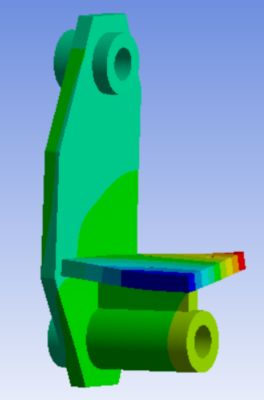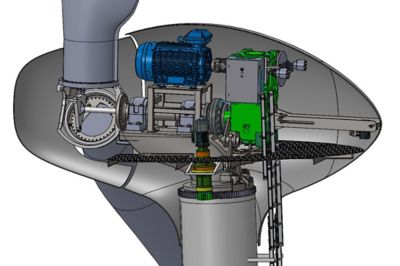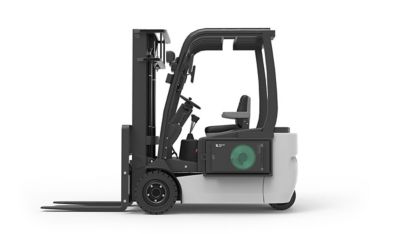-
United States -
United Kingdom -
India -
France -
Deutschland -
Italia -
日本 -
대한민국 -
中国 -
台灣
-
-
產品系列
查看所有產品Ansys致力於為當今的學生打下成功的基礎,通過向學生提供免費的模擬工程軟體。
-
ANSYS BLOG
April 28, 2023
Ansys Startup Program Continues to Soar Globally with Added Incentives
Boasting double-digit annual growth, the Ansys Startup Program continues to make a global impact on emerging innovation by supplying rising engineering and technology companies with the simulation tools they need to develop groundbreaking products, systems, and workflows.
The program, which launched globally in 2016, is a testament to Ansys’ dedication to lowering the barrier of entry to both learning and accessing simulation. By offering affordable simulation software to eligible companies, more than 1,850 early- to mid-stage startups across 57 countries have benefited from the program since its inception, with a 70% expansion in the past two years alone.
Ansys’ Startup Program bundles have always provided a generous range of multiphysics simulation, including mechanical, fluids, and electromagnetic analysis tools. Today, the program offers even more engineering disciplines and benefits with newly added digital mission engineering, optics, photonics, and semiconductor simulation tools.
Top-Quality Simulation Tools Priced for Early- to Mid-Stage Startups
With limited funding and revenue, startups must make wise and resourceful decisions when allocating expenses. Adding to the challenge, building and testing physical prototypes to verify product performance is costly and time consuming.
The Ansys Startup Program aims to alleviate these early business woes with access to a broad portfolio of affordably priced multiphysics simulation solutions to help startups grow their businesses while significantly reducing physical prototype testing. In addition, businesses gain access to the Ansys Learning Hub, which includes training resources such as virtual classes, recorded videos, and application content.
Eligible startups can select any combination of our seven product bundles that are each packed with popular simulation tools.

Simulated deflection of the brake caliper mounting fixture that is critical to stopping Pecos Wind Power’s rotor in emergency situations.
Here is a brief overview of select products included in each bundle.
Structures and Fluids
| Electromagnetics
| Embedded Software
| Optics and Photonics
|
Digital Missions
| Semiconductor (Analog and Mixed Signal)
| Semiconductor (Digital and AMS)
|
Improving the World with Simulation, One Startup at a Time
Companies in Ansys’ startup ecosystem span a diverse set of industries including aerospace, energy, automotive, and healthcare, with 30% of those startups dedicated to sustainability.
Pecos Wind Power, an early-stage wind turbine manufacturer in the program, aims to serve cost-competitive, clean energy to electric distribution utilities, commercial and industrial businesses, schools and universities, agricultural facilities, and military installations. The team uses Ansys to design and optimize inexpensive wind turbines for low windspeed power generation.
“The tools accessed through the Ansys Startup Program have been critical to modeling the structural capability of our wind turbine,” says Josh Groleau, Co-founder and Chief Executive Officer at Pecos Wind Power. "We’ve used Ansys to optimize material usage in our tower, nacelle, and hub. This has resulted in less steel, less cast iron, and a lower cost of energy from our turbine.”

Rendering of Pecos Wind Power’s community-scale wind turbine for onsite power generation at rural businesses, farms, and municipalities.
Resonant Link, another fast-growing company that benefited from the program, is using simulation to bring high-performance wireless power to mission-critical applications.
“Ansys simulation software has been an enabler in our ascent to becoming the wireless charging leader in the healthcare, consumer electronics, and electric vehicle industries,” says Aaron Stein, Chief Technology Officer at Resonant Link. “Patients get five times faster charging than conventional wireless chargers, and lift truck operators get fast and easy charging with no unplanned downtime, through the combination of our multi-layer self-resonant structure (MSRS) coil technology, team of power electronics and magnetics experts, and the capabilities we get from Ansys.”

Resonant Link’s wireless power platform uses a unique multi-layer self-resonant structure (MSRS) coil technology that provides five to 10 times higher charging performance than existing technologies.
Resonant Link’s founders have focused on using wireless charging to speed the adoption of electric vehicles and improve human health. Their wireless charging platform provides fast, safe, cost-effective, and easy-to-use wireless power that helps people, businesses, and the planet thrive, by providing an economical way to combat climate change and improve outcomes for people with implanted medical devices.
With access to simulation through the Ansys Startup Program, Resonant Link quickly surpassed several key technology milestones and accelerated their wireless charging development for a wide range of industries.
“This translates to a higher quality of life for patients with implanted medical devices and significant cost savings and workflow efficiencies for warehouse operators, to name a few of the many benefits,” Stein adds.

Resonant Link’s industry-leading automatic, wireless fast charging of warehouse fleets means you never have to stop a vehicle again just to charge it.
Outside of sustainability-centered initiatives, program participants come from a wide range of industries, including high tech (20%), energy (15%), aerospace and defense (14%), healthcare (10%), automotive (7%), and others.
These companies are developing next-generation technology involving 5G communications, internet of things (IoT) applications, autonomous driving, cancer treatment, space flight, and more.
Support for Startups and the Future
“Startups contribute to innovation across industries, and Ansys is honored to play a key role in their success by offering our support and access to cutting-edge simulation tools,” says Prith Banerjee, Chief Technology Officer at Ansys. “Ansys simulation helps startups determine the feasibility of their ideas, reduce development costs, decrease design timelines, and increase product performance. This is crucial for all companies facing engineering challenges, but even more so for startups that are working to grow funding and initial revenue.”
Ansys is committed to ensuring affordability of industry-leading tools for a better tomorrow. In addition to the Ansys Startup Program, the company supports educational simulation integration through the Ansys Academic Program, which provides universities with affordable software for use in the classroom and in research. Further support is extended to students for at-home learning through free software downloads.
In some instances, the success of the programs comes full circle. Students who gained firsthand experience with Ansys simulation in academia have an edge on job prospects after graduation, landing positions at startups and companies that use Ansys software regularly.
To learn more about the Ansys Startup Program and see a full description of the products in our bundles click here.










